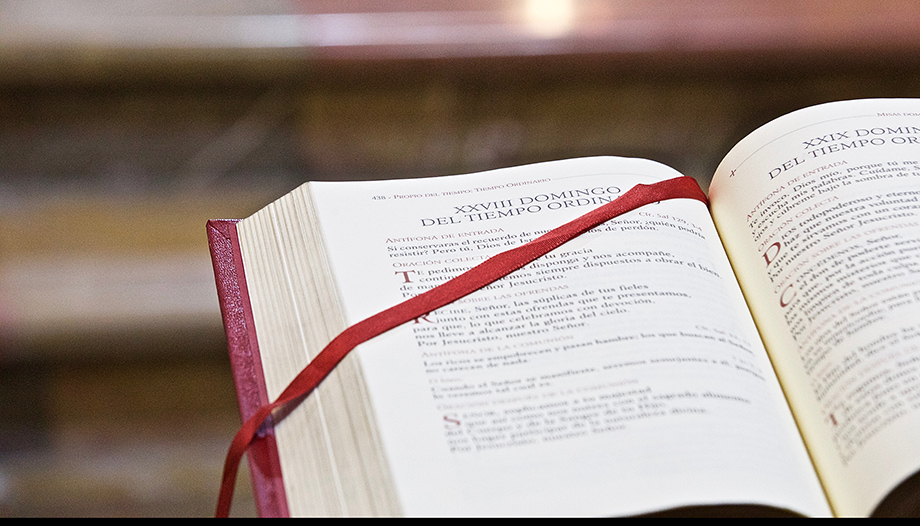That miraculous bread, the manna, which kept Israel alive as it went through the desert, was designed to reveal its own inadequacy. It fulfilled its purpose and kept the Israelites fed in the wilderness but as Moses told the people – and we hear this in today’s first reading – this bread pointed to a greater reality. “And he humbled you and let you hunger and fed you with manna, which you did not know, nor did your fathers know; that he might make you know that man does not live by bread alone, but that man lives by everything that proceeds out of the mouth of the Lord.”
So, the purpose of the bread was to teach the Israelites not to limit their hunger to physical bread. They had to learn to trust in God, to find in him their ultimate nourishment. Unfortunately, it seems that by the time of Jesus they had still not learnt this lesson. When Jesus multiplied the loaves in the desert, the Jews came to him wanting more. And Jesus has to tell them: “Do not labour for the food which perishes, but for the food which endures to eternal life, which the Son of man will give to you.” He must remind them about the limited nature of ordinary bread, even when produced miraculously: “Your fathers ate the manna in the wilderness, and they died.”
But Jesus then announces to them a far greater bread which is even more than God’s teaching understood metaphorically, to be ‘nourished’ by it. The Eucharist isn’t God’s word; it is God’s Word. It is God himself, the logos, the very Word of God, consubstantial with the Father, who gives himself to us in the form of bread – and wine. And this is what we celebrate in today’s feast, Corpus Christi. The Mass readings today stress the very literalness of the Eucharist. Moses told the people: don’t seek bread, seek God’s word, his teaching. Jesus goes further and gives us bread which is itself God’s Word – not just his teaching but the very teacher himself.
And this bread will not merely keep us alive for a matter of years, it will do so for all eternity. If we eat the Eucharistic bread we ‘have eternal life’ (i.e. we already possess it now, in part, as a first sharing) and Christ ‘will raise [us] up on the last day’. Eating Christ makes us live in him and he concludes: “he who eats this bread will live for ever.” So, in celebrating this feast, and whenever we receive the Eucharist, our thoughts should go to eternity. This is not merely food for a geographical wilderness for a number of years, leading to life in a Promised Land which turned out to be very mixed blessing. This is food to take us through the wilderness of our imperfect state on earth to the unadulterated joy of eternal life with God. Receiving the Eucharist should stir in us an ever greater desire for heaven.
Homily on the readings of Corpus Christi (A)
The priest Luis Herrera Campo offers its nanomiliaA short one-minute reflection for these Sunday readings.












